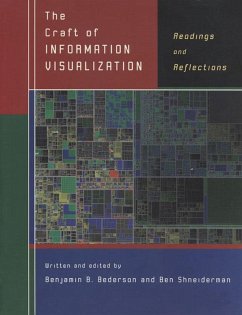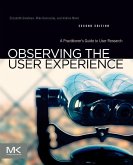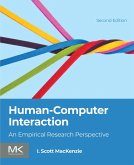This book collects 38 of the key papers on information visualization from a leading and prominent research lab, the University of Maryland's Human-Computer Interaction Lab (HCIL). Celebrating HCIL's 20th anniversary, this book presents a coherent body of work from a respected community that has had many success stories with its research and commercial spin-offs.
Each chapter contains an introduction specifically written for this volume by two leading HCI researchers, to describe the connections among those papers and reveal HCIL's individual approach to developing innovations.
*Presents key ideas, novel interfaces, and major applications of information visualization tools, embedded in inspirational prototypes.
*Techniques can be widely applied in scientific research, digital libraries, data mining, financial data analysis, business market studies, manufacturing production control, drug discovery, and genomic studies.
*Provides an "insider" view to the scientific process and evolution of innovation, as told by the researchers themselves.
*This work comes from the prominent and high profile University of Maryland's Human Computer Interaction Lab
Dieser Download kann aus rechtlichen Gründen nur mit Rechnungsadresse in A, B, BG, CY, CZ, D, DK, EW, E, FIN, F, GR, HR, H, IRL, I, LT, L, LR, M, NL, PL, P, R, S, SLO, SK ausgeliefert werden.
Hinweis: Dieser Artikel kann nur an eine deutsche Lieferadresse ausgeliefert werden.









